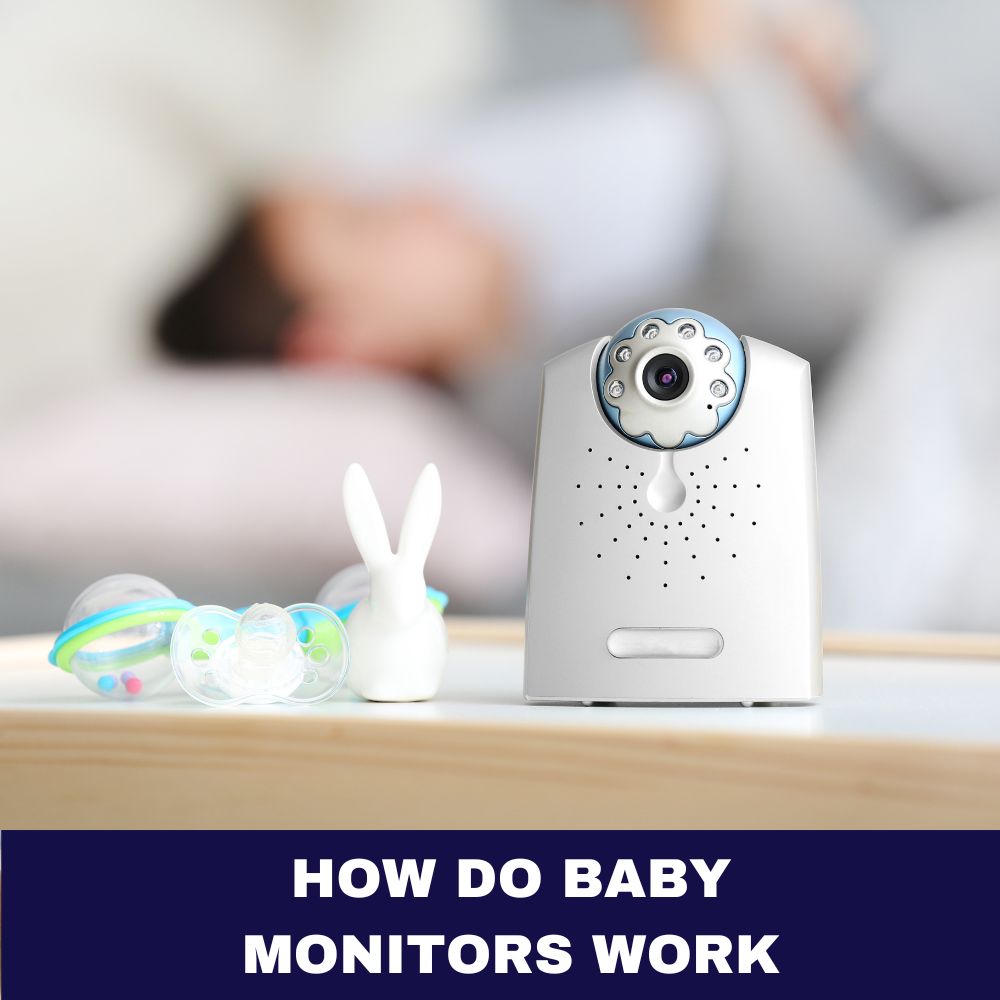Waking up multiple times a night for feedings is par for the course with a newborn. But when your bundles of joy won’t settle back to sleep afterward, exhaustion can set in fast. You may plead into the darkness, “Why why why my baby won’t go back to sleep after night feeding?” If this scene feels all too familiar, you’re not alone. Many parents face frequent nighttime wakings that disrupt the whole household’s much-needed rest.
The good news? With some strategic troubleshooting, you can uncover reasons why baby struggles after midnight snacks and find gentle solutions to help them transition back to slumber. This article explores common causes of post-feeding nighttime disturbances along with tactics to calm baby and promote restful sleep for everyone. Read on for tips that have helped many a sleep-deprived mama and papa survive the early parenting trenches.

Common Causes of Night Wakings After Feeding
Before diving into solutions, it helps to understand potential reasons why your baby won’t settle after noshing in the wee hours. Here are several common culprits:
Sleep Disruption – Whether from lights, noises, or frequent wakings preventing establishing a rhythm, anything interrupting quality sleep throughout the day and night can lead to unpredictable patterns and difficulty resuming rest.
Inadequate Daytime Feeds – Tanking up with sufficient ounces during sunlight hours provides a better foundation for longer night stretches. Undereating due to distraction or low appetite may manifest in more frequent night wakings.
Overstimulation – Too much sensory input like bright lights, talking, or sudden movements during nighttime feeding can disrupt a sleepy baby’s state, making it harder for them to return to slumber.
Digestive Discomfort – Tummy troubles like reflux and gas pain can prevent getting comfy cozy after eating. This results in wakeful periods while the baby tries to find relief.
Early Bedtimes – Turning in too early can cause early morning wakes. Nailing an appropriate schedule helps establish biological rhythms that sync with nighttime.
Growth Spurts – During development bursts, increased hunger leads to extra wake-ups. Feeding patterns can fluctuate for a period before settling.
Sleep Associations – Needing specific conditions like nursing, rocking, or perfect silence to drift off becomes problematic when those supports abruptly disappear after a night feeding, leaving the baby adrift.
Underlying Health Issues – Ear infections, allergies, reflux and other medical problems can impair sleep quality and lead to difficult nights.
As you troubleshoot your own baby’s stubborn sleep struggles, see if any of those factors may offer clues. Now let’s explore helpful solutions.
| Issue | Potential Causes | Solutions to Try |
|---|---|---|
| Waking too early | Too-late bedtime | Move bedtime 15 min earlier |
| Hunger | Offer dream feed | |
| Multiple night wakings | Sleep props | Fade props gradually |
| Growth spurt | Increase day feeds | |
| Won’t settle after feeding | Overstimulation | Dim lights, white noise |
| Gas pain | Bicycle legs, tummy massage | |
| Sleep association | Put down drowsy but awake |
The Science of Infant Sleep
Sleep is vital for babies’ rapid development and growth. Understanding the science behind infant sleep cycles can help parents better solve night-waking challenges.
Babies cycle between REM (rapid eye movement) and non-REM sleep. Night feeds can disrupt these cycles, making it harder for the baby to fall back asleep. During REM sleep, the brain is highly active. Non-REM includes deep and light sleep stages. Waking babies during light sleep is easier than rousing them from deep sleep.
Melatonin production is also impacted by light/dark signals. More melatonin is released at night, priming the baby for sleep. Night feedings conducted in daylight or under bright lights can hinder melatonin release and disrupt a baby’s circadian clock.
Establishing consistent naptime and bedtime routines in tune with circadian rhythms encourages better nighttime sleep. Putting babies down drowsy but awake at the right times teaches them to self-soothe to sleep independently. Over time, sleep patterns consolidate with fewer night wakes.
Managing Sleep Disruptions
Preventing interruptions to your infant’s rest paves the way for them to easily resume sleep after night feeds. Here are some key tips:
- Maintain consistent nap routines during daylight hours to reinforce healthy sleep patterns.
- Conduct night feeds in dim settings to avoid visual stimulation.
- Speak softly and avoid sudden noises that could disrupt light sleep states.
- Allow baby to guide their own natural night waking schedule when possible.
- Install blackout curtains and white noise to block disruptive lights and sounds.
The goal is to eliminate stimuli that might hinder slipping back into slumber after satisfying midnight munchies.

Ideal Daytime Feeding Routine
Tanking up sufficiently during the day prevents erratic night waking patterns. Try these best practices:
- Offer small, frequent feeds every 2-3 hours to prevent intense hunger overnight.
- Gently rouse sleepy babies to ensure full feeds instead of short nibbles all day.
- Burp well and bicycle legs to relieve any gas that could wake the baby up later.
- Ensure adequate ounces or minutes per breast at each feeding.
- Observe the baby’s cues like increased sucking or rooting rather than the clock to determine when more is needed.
The better-fed baby is beforehand, the longer stretches they can sustain overnight once digestive demands are met.
When to Introduce Solids
Between 4-6 months, signs of readiness for solids emerge:
- Baby can sit up supported and hold their head steady.
- The tongue thrust reflex fades so food doesn’t automatically push back out.
- Baby reaches for food, watches others eat intently and opens their mouth when food approaches.
Starting solids can help the baby sleep better. Offer solids after milk feeds once per day, then gradually increase frequency and variety. Focus on iron-rich purees like cereals first before fruits/veggies. Start with 1-2 teaspoons and allow the baby to determine fullness.
Choose simple, single-ingredient foods at first. Pay attention to potential allergies. Offer spoon only – no bottles. Go slow with patience for mess. Make mealtimes relaxed and pressure-free.
Over time, increase texture from purees to soft finger foods. Vary fruits, veggies, cereals, and proteins. Follow baby’s cues for optimal timing and serving sizes.
| Age | Day Sleep | Night Sleep | Night Feeds |
|---|---|---|---|
| 0-3 months | 4-5 naps, 30-90 min | 8-10 hours | 1-3 feeds |
| 3-6 months | 3-4 naps, 30-60 min | 10-12 hours | 1-2 feeds |
| 6-9 months | 2-3 naps, 45-90 min | 11-12 hours | 0-1 feed |
| 9-12 months | 2 naps, 1-2 hrs | 11-13 hours | 0 feeds |
Soothing Nighttime Environment
While darkness, white noise and familiar smells promote solid slumber, going overboard on stimulation busts the sleepytime vibe. Follow these tips during night feeds:
- Conduct changes and feeds in baby’s peaceful, dim sleeping quarters.
- If relocating is unavoidable, avoid turning on overhead lights. Utilize a dim, red-tinted bedside lamp that doesn’t suppress melatonin.
- Resist smiles and chatter that amp baby up. Whisper calmly through essential care tasks.
- Whether breast or bottle, offer feeds sitting or side-lying in a darkened, quiet atmosphere.
The right sensory experience during midnight feeds primes baby for an easy segue back to dreamland.
Diaper Change Timing Strategies
As tempting as freshening your little squish’s tush may be post-feed, a full diaper swap can be overly stimulating. Try these tactics instead:
- Stick with extra-absorbent overnight diapers that allow skipping changes.
- Change baby prior to eating when desperate for relief.
- If waiting seems unsafe, offer half the feeding, change, then feed again.
- As a last resort, conduct quick changes emitting minimal sensory disruption.
Strategizing around diapering dilemmas prevents waking baby further or interrupting their sleep cycles unnecessarily.

Calming and Settling Techniques
When baby reaches full alertness no matter what precautions you take, calming rituals reinitiate rest. Consider these soothing ideas:
- Swaddle snugly post-feed and rock gently without excessive jostling. Choose rhythmic motions babies experience in the womb.
- Offer pacifiers to satisfy non-nutritive suck needs.
- Hold baby skin-to-skin and pat or shuffle softly while shushing.
- Play white noise or soft lullabies and continue careful movements until baby settlers.
- If reflux is an issue, keep the baby upright for 10-15 minutes post-feeding before attempting to lay back down.
- Put baby down awake once drowsy to allow self-soothing back to sleep.
meeting all their needs first makes drifting off easier once the time comes.
Dealing with Trapped Gas
If your baby pulls its legs up, grunts, strains and resists sleeping after feeding, digestive woes likely plague their efforts. Alleviate discomfort with these tips:
- Burp baby thoroughly mid-way through feeds and hold upright 10 minutes afterward.
- Gently bicycle legs, rub tummy clockwise and warm a rice sock to place on their abdomen.
- Give baby tummy time right after feeding can help move the gas out.
- Ask your pediatrician about appropriate gas relief drops or probiotics to ease bloating.
- Identify and eliminate gas-inducing foods from your diet if breastfeeding.
By tackling tummy troubles head-on, your infant will have an easier time relaxing into restful post-prandial sleep.
Contact Comforting
Some babies crave closeness, finding mom or dad’s scent, sound and touch the only ticket back to dreamland after feeding. If your munchkin wants nothing but being held endlessly, try these tips before resigning yourself to hours spent pacing the halls:
- Wrap baby snugly against your chest in a sling or carrier and sit in a rocking chair as you unwind before bed.
- Co-sleep safely per guidelines allowing comfort nursing and light caresses to help baby back down.
- Compromise with timed intervals of calming cuddles building up to partner-assisted independent sleep.
- Accept contact comfort as a passing phase, not a permanent need. Respond sensitively without anxiety.
Physical reassurance provides a loving bridge as your baby learns to self-soothe to sleep. Meet them where they’re at today while building habits for capability tomorrow.
Managing Sleep Associations
If your baby uses props like nursing, rocking or precise sleep arrangements as “sleepytime security blankets”, removing the association abruptly can backfire. Take a gradual approach instead with these ideas:
- Meet baby’s needs consistently in the short term even if inconvenient to establish secure trust.
- Over time, replace the primary sleep crutch with new effective associations like white noise and touch.
- Once the baby accepts alternatives easily, systematically decrease touchpoints like patting, then presence entirely.
- Celebrate progress and accept temporary regression during travel or developmental milestones.
Respond sensitively, build new positive sleep associations gradually, and decrease assistance slowly over many weeks or months. The key? Moving at baby’s pace while working toward independent sleep skills.

Sleeping Arrangements
Sometimes finding optimal real estate helps baby sleep easier. Use wisdom and observe baby’s personality and needs when deciding:
- Room sharing allows responding quickly while separate rooms minimize disruption. Choose what maximizes rest.
- The baby may sleep better solo in the crib or nestled next to the parents’ bed if needing reassurance.
- Set up cribs simply without excessive accessories if distraction-prone. Add familiarity like sleep sacks if separation is anxious.
- Try various locations and evaluate the baby’s resulting disposition and stamina. Let evidence guide decisions.
Remaining flexible to rearranging quarters based on snooze success indicators results helps select the best site for your baby to get good sleep consistently.
Room Sharing Strategies
Room sharing allows close proximity for night feeds but can also disturb a baby’s sleep. Here are tips for parents sharing rooms with frequent night feeders:
- Set up clear sleep zones with the baby’s crib separate from the parent’s bed to define spaces.
- Use white noise to prevent normal household sounds from waking the baby.
- Keep lights extremely dim for overnight care to avoid stimulating the baby.
- When developmental signs emerge, put the baby down slightly awake to facilitate independent sleep.
- Gradually move the crib further away from the parents over a period of weeks/months.
Some families choose to room share for longer periods due to culture or parenting philosophy. With careful limits on stimulation, success is possible:
- Maintain bedtime routines like swaddling and white noise when first transitioning baby to their own room.
- Slowly decrease night feeds by stretching intervals between them week-by-week.
- Celebrate milestones like baby sleeping part of the night in their own room.
Coping with Light Sleepers
Unfortunately for bleary-eyed parents, some babies possess a nervous system prone to persistently light, disrupted sleep. Survival suggestions include:
- Help naturally early risers tire out more during day naps and bedtimes to build longer nighttime sleep drives.
- Incorporate white noise, blackout curtains and wake-minimizing diaper brands tailored to light sleepers.
- Wait until baby reaches deep sleep cycles marked by limp arm raises before transferring to bassinet post-feeding.
- Accept extra night needs with empathy, adjusting own mental expectations. This too shall pass eventually!
While challenging, recalibrating activities and environments for easily woken babies bolsters their sleep success even through temporary regressions.
When to Call the Pediatrician
If suddenly baby refuses to sleep after previously snoozing well or all tricks to encourage bedtime relaxation after feeds fail, an underlying condition may be brewing requiring medical insight. Seek pediatric support for:
- Persistent waking accompanied by obvious signs of pain or distress
- Chronic night waking exceeding baseline frequency by several wakes per evening
- Failure to gain weight or appetite changes
- Symptoms like fever, congestion, vomiting or diarrhea
- Extreme inconsolability, stiffness or body arching
- Excessive head sweating particularly while sleeping
Discussing perplexing sleep disturbances with your trusted pediatrician reveals whether an illness or disorder could be brewing necessitating swift action to restore healthy slumber quickly. Don’t hesitate reaching out for a consultation if something feels off.
Handling Sleep Deprivation
Insufficient sleep leaves moms and dads emotionally frayed and physically fatigued. Combat the inevitable toll with self-care:
- Sleep or relax whenever the baby sleeps without feeling guilty. Household tasks can wait!
- Switch off night shifts with a partner so each person secures a solid nightly sleep chunk.
- Ask family or friends to babysit for power nap breaks. Even 45 minutes helps tremendously!
- Nap side-lying next to a baby during daylight hours as much as possible.
- Seek social support from fellow parent friends who empathize with the struggles.
- Practice self-compassion using positive self-talk when handling challenging moments.
- If emotional overload reaches critical levels, immediately call emergency contacts or providers.
Attending properly to personal rest and renewal equips parents to sensitively nurture baby’s growth – short and long-term.

Teaching Baby Self-Soothing
As the baby matures, nurturing emerging capability to drift off solo after night feeds helps ensure everyone gets to rest. Around 4-6 months old, proactively help baby learn to sleep independently using gentle, gradual methods respecting their unique temperament. Consistently respond to needs, allow adjusted crying, but support self-settling skills compatible with your family values to reduce sleep crutches over time.
The key is gradually building confidence and skills without forcing the baby into developmentally inappropriate harsh expectations. Meet baby where they’re at today while expanding your capability for calm, confident sleep tomorrow.
Conclusion
If your darling angel transforms into a sleep-resistant beast after dark despite meeting their every need, rest assured this too shall pass. Arm yourself with knowledge of common causes for night waking refusal and gentle troubleshooting tips suitable for your baby’s age and temperament. Remain patient with temporary regression during major baby milestones while continuously fostering healthy sleep habits. Support your partner getting rest, call upon your village for practical support, practice radical self-care, and trust your pediatrician if health factors could be complicating matters. Stay positive knowing that this intensive phase shall not last forever. Soon baby will thrive on age-appropriate sleep independence and the whole family will rejoice cherishing restful nights again!
FAQs – Baby won’t go back to sleep after night feeding
Why does my baby have trouble falling back asleep after eating at night?
Common reasons include overstimulation during feeds, inadequate daytime feeds leading to extreme hunger, digestive discomfort from gas or reflux, early bedtime causing early wake ups, a growth spurt, strong sleep associations babies struggle without, or an underlying health issue.
What’s the best way to feed baby at night to promote better sleep?
Conduct night feeds in baby’s dim, familiar sleeping area avoiding stimulation. Whisper softly, don’t turn on bright lights, and avoid sudden loud sounds. Offer a full feeding and burp partway through.
How can I make it easier for baby to resume sleep after a night feeding?
Strategies like swaddling, gentle rocking motions, pacifiers, white noise, skin-to-skin contact, allowing short cries, putting down drowsy but awake, and helping relieve discomfort from gas or reflux can help baby drift back off to sleep more easily after eating.
When should I call my doctor about night waking to feed issues?
Contact your pediatrician if night waking suddenly exceeds baseline frequency, if signs of pain/distress accompany wakeups, if appetite or weight changes considerably, if other symptoms appear (fever, vomiting, etc), or baby seems inconsolable.
How can I cope with exhaustion from frequent night wakings?
Sleep/rest when baby sleeps. Switch off shifts with a partner. Accept help from family or friends for respite. Nap together. Connect with empathetic parent friends. Practice self-care and self-compassion. Seek emergency support if emotionally overloaded. Prioritize your wellbeing.












